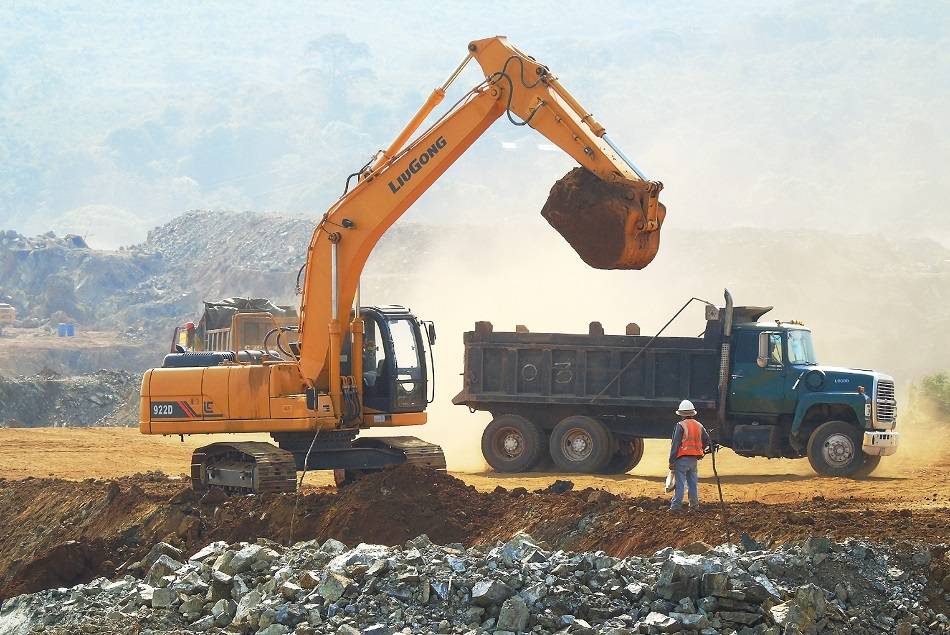
Image Credit: Dendenal/Shutterstock.com
Guatemala, with a total population of 16,581,273 as of July 2018, is located in Central America, bordering the Gulf of Honduras between Honduras and Belize and the North Pacific Ocean between El Salvador and Mexico.
Guatemala covers a total area of 108,889 km2 and has a tropical climate. The country is the most densely populated in Central America and has the highest population growth in Latin America. GDP is roughly half the average of that in Latin America and the Caribbean at $138.1 billion.
In 2009, Guatemala experienced very slow progress in its economy due to the global recession that reduced foreign investments and export demand from Central American and US markets. By 2015, GDP growth rate in the country was 4.1% and by 2017 GDP growth had slowed down to 2.8%.
Guatemala’s main export partners are the United States, El Salvador, Honduras, Mexico, and Nicaragua. The country exported $10 billion worth of goods in 2017. Since 2011, the mining sector has contributed on average of 2.2% of Guatemala’s nominal GDP.
Overview of Resources
Guatemala has abundant mineral reserves that include uranium, sand and gravel, nickel, limestone, petroleum, coal, gold, silver, copper, iron ore and cobalt. These minerals play a significant role in providing investment potential for fostering development and exploration in the country.
In 2017, Guatemala exported $560 million of mineral products including refined petroleum, lead ore and nickel ore, and $101 million of precious metals, primarily gold and silver.
Details of Guatemala’s mineral production in 2017 are given below:
- Lead ore ($134 million)
- Nickel ore ($122 million)
- Crude petroleum ($102 million)
- Gold ($57.8 million)
- Silver ($33.8 million).
Industrial Minerals
The main industrial minerals that are produced in Guatemala are lead ore and nickel ore. In 2017, the total volume of minerals produced in the country was reported to be 751,360 metric tons. This was an increase from 2016’s production, which reached 726.183 metric tons.
Metals
In 2017, the mine output of gold in Guatemala was 173.000 kg which was a decrease from 3,826.000 kg. Silver production decreased from 803.489 metric tons in 2016 to 786.794 metric tons in 2017. In 2015 Marlin Mine, owned by Goldcorp Inc. of Canada, produced approximately 93% of Guatemala’s gold.
.gif)
The map of Guatemala. Image Credit: CIA Factbook
Fossil Fuels
Guatemala imported $2.5 billion of refined petroleum in 2017. The export of crude petroleum was valued at $102 million. Europe’s Perenco produced 8,000 BOEPD (Barrels of Oil Equivalent Per Day) in 2018 from the Xan field in the Northern Petén region. This represented 90% of Guatemala’s national oil production in that year.
In 2010, Guatemala received crude petroleum under preferential pricing from Venezuela and Mexico. According to the Caracas Energy Accord, Venezuela provided extra shipments of crude petroleum to Guatemala. Guatemala further became a member of the Petrocaribe Energy Cooperation Agreement (PetroCaribe), which allowed the country to obtain more petroleum from Venezuela by initially paying only 50% of the required cost and paying the balance within a period of 25 years.
Investment
Guatemala’s mining conflict is a major roadblock for mining operations in the country. In recent years, there have been several confrontations between local indigenous peoples and mining companies in this Central American nation, which do not show signs of being resolved any time soon. The main concerns from locals are that indiscriminate mining in certain areas will lead to damage of land and water pollution, thus affecting their livelihoods.
One recent legal case brought by a group of indigenous Maya Q’eqchi’ accused police, military and private security personnel linked to a Canadian mining company operating in the country of Human Rights abuses. This, and other cases, have brought a chill to the mining sector in this struggling country.
The future of the mining industry in Guatemala will largely depend on the government’s ability to resolve the ongoing mining conflict and take necessary steps to stabilize its mining operations.
Disclaimer: The Author of this article does not imply any investment recommendation and some content is speculative in nature. The Author is not affiliated in any way with any companies mentioned and all statistical information is publically available.
Sources and Further Reading
This article was updated on 27th February, 2020.
Disclaimer: The views expressed here are those of the author expressed in their private capacity and do not necessarily represent the views of AZoM.com Limited T/A AZoNetwork the owner and operator of this website. This disclaimer forms part of the Terms and conditions of use of this website.